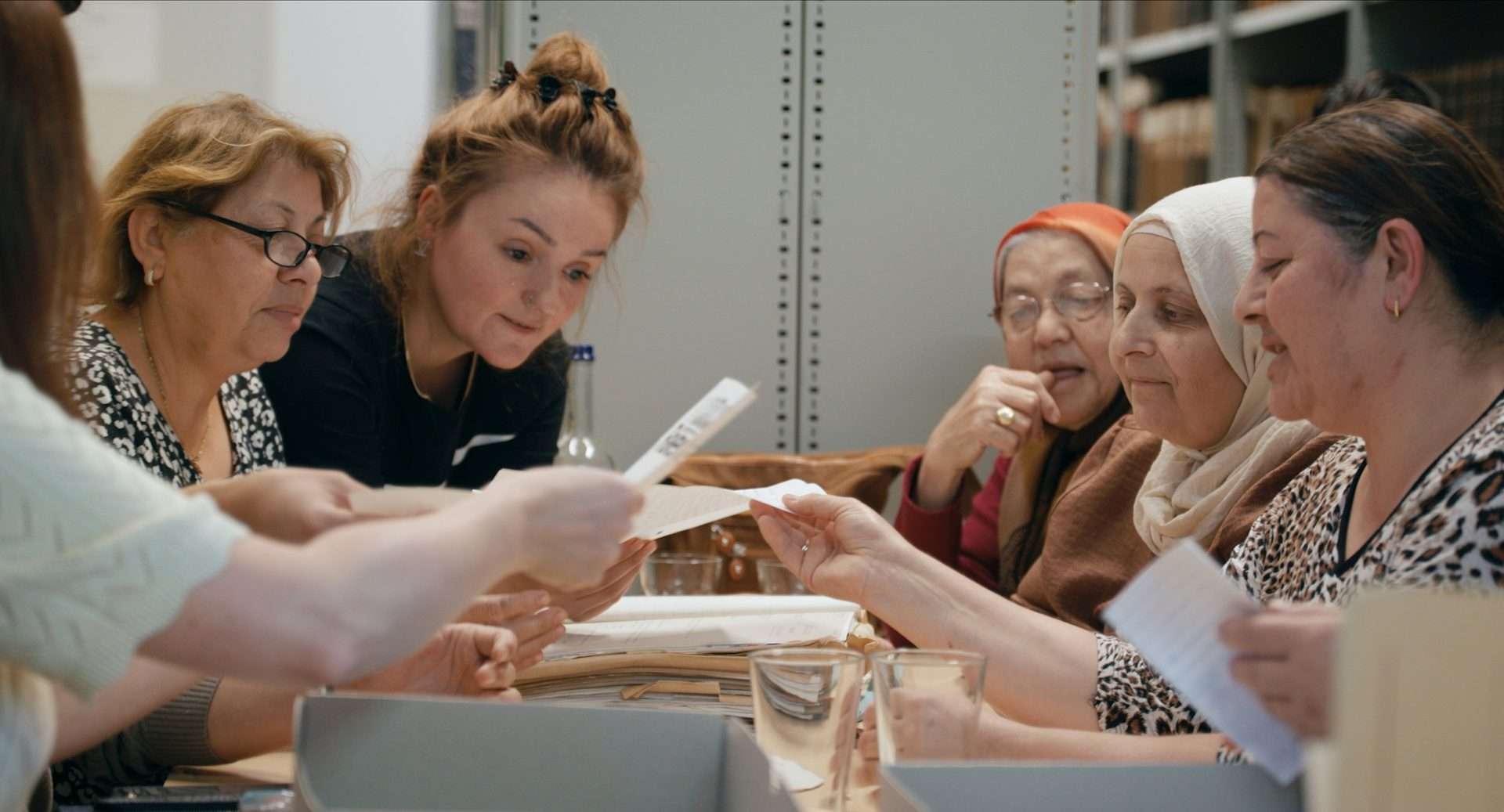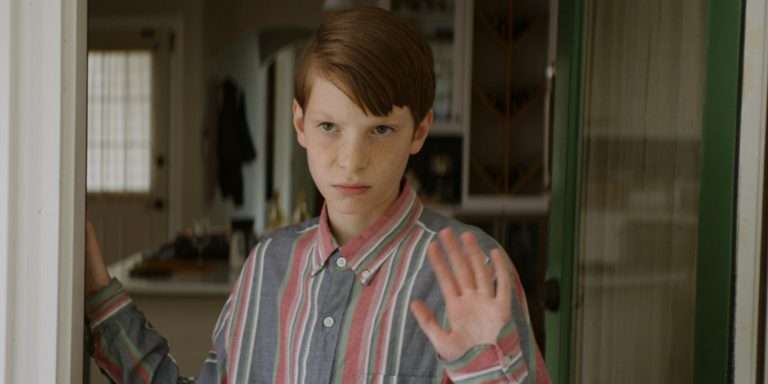The past barrels into the present especially when it’s not given its dues, accorded a place it owes. Martina Priessner’s The Moelln Letters dredges into the wellspring of trauma that stemmed from the racist arson attack against a Turkish immigrant-occupied building in the German city of Mölln. The incident happened in 1992. When we are let into the remembrance, it’s 2022.
Victims are still grappling with the shock, the agony of a past deprived of much-needed reflection. The documentary zeroes in on a particular family of Arslans whose lives were irrevocably shattered by the attack. Ibrahim lost his sister, his grandmother, and his cousin in the fire. He was all of seven. Now, thirty years later, he goes digging into the public framing of how his family was treated after the attack, as well as other survivors.
This is a work seeped in tremendous grief and confrontational resilience, powered by steely resolve and steady conviction. Priessner is as respectful, patient, curious, and empathetic as the survivors themselves may have wished for post the attack. Decades have passed since the incident but its ashes remain. There’s so much that’s yet unresolved, unaddressed, poking its head out and demanding answers, accountability, and acknowledgment. The survivors admit feeling unsafe even now. The trauma is still fresh, resurfacing with abruptness. Horrors have been endless, insistent, and abrasive. It comes up and stabs. The cycle goes on. One of Ibrahim’s siblings confesses attempting to dissociate as much as possible from their name, and the burden of immediate prejudice rattles off.
However, there were scores of solidarity letters, emphasizing many in the city and Germany being present and attendant to the victims and survivors. It’s not all dull and gloomy and they aren’t pitted against the whole world but the affected never got to that sense of reaffirmation. It was as if their experiences weren’t validated, or given any credence.

In the most basic response to the ghastly episode, the city’s administration failed. It’s just been spectacularly tardy and utterly closed off to a sensitive approach. The letters were addressed to the city and the mayor’s office kept them locked up. Instead of passing them on to the victims, denied empathy and a listening voice when they needed it most. The mayor hadn’t even bothered to come and stand beside them, register his availability in a time of crushing distress. Neither did his office care to bridge them with those who were ready with hearts full of compassion.
The Moelln Letters sweeps through the decades-long administrative blindness to the victims and initiates dialogue. It’s a necessary, urgent reckoning, with a repressed history coming to light. What does the discovery of the letters imply, and bring in its wake? When Ibrahim’s family and survivors of other racist attacks go through them, they are struck by the overwhelming tide of national shame and abnegation. It’s a critical reminder the entire country didn’t share the sentiments of select hate-fuelled goons.
We follow Ibrahim as he meets some of those people who’d reached out through the letters that never got to them. In a particularly moving moment, Ibrahim talks of his mother being overwhelmed by the letter of a kid, who’d sent a stone as a sign of support because she didn’t have money. Every gesture counts. No matter the harassment and discrimination Ibrahim’s family had to endure, they chose to stay. The letters are a powerful, wrenching resisting force to lonely horrors they had found themselves locked in.
Importantly, Priessner never shies away from foregrounding Ibrahim’s appeal for a collective of racism’s victims, cutting across nationality. What’s persistent is an absolute rejection of parochialism, extending to its delineation of victimhood and the fate of the wronged. The world can’t surrender to hate and exclusion. Ibrahim acknowledges there may be profound differences in the experiences of Jews and Muslims. Nevertheless, they can still rally together for their most fundamental rights. Extraordinary strength can be forged from its meeting point. It’s never too late to reclaim and remember. Overall, The Moelln Letters is a vital, passionate espousal of this statement, staking immense power and fortitude.





![Zootopia [2016] : Animalistic tendencies!](https://79468c92.delivery.rocketcdn.me/wp-content/uploads/2016/03/zootopia-disney-768x431.jpg)
![URI: The Surgical Strike [2019] Review: Josh Is High](https://79468c92.delivery.rocketcdn.me/wp-content/uploads/2019/01/uri_4_0-768x432.jpeg)

